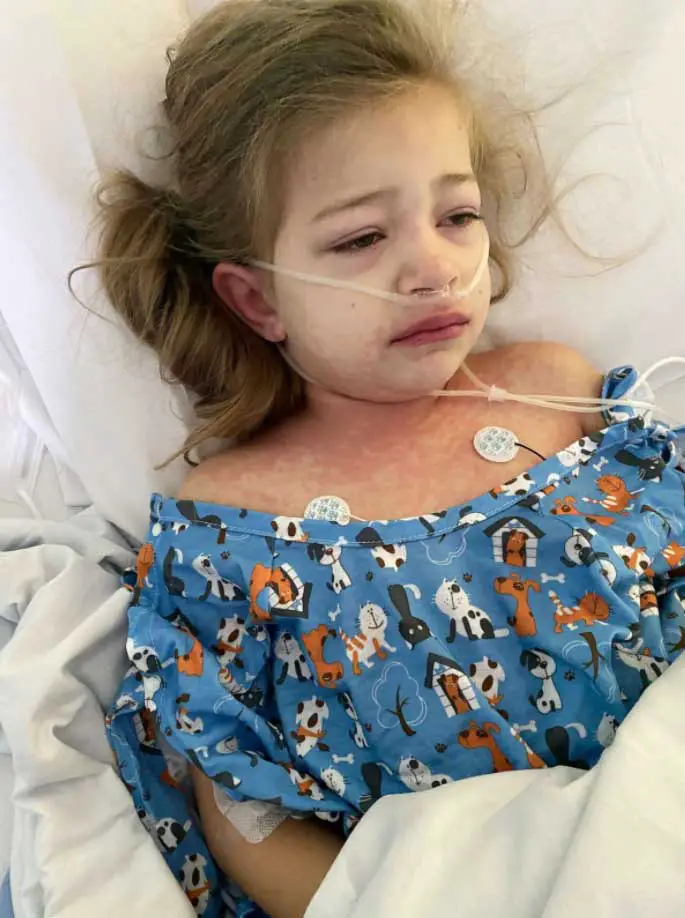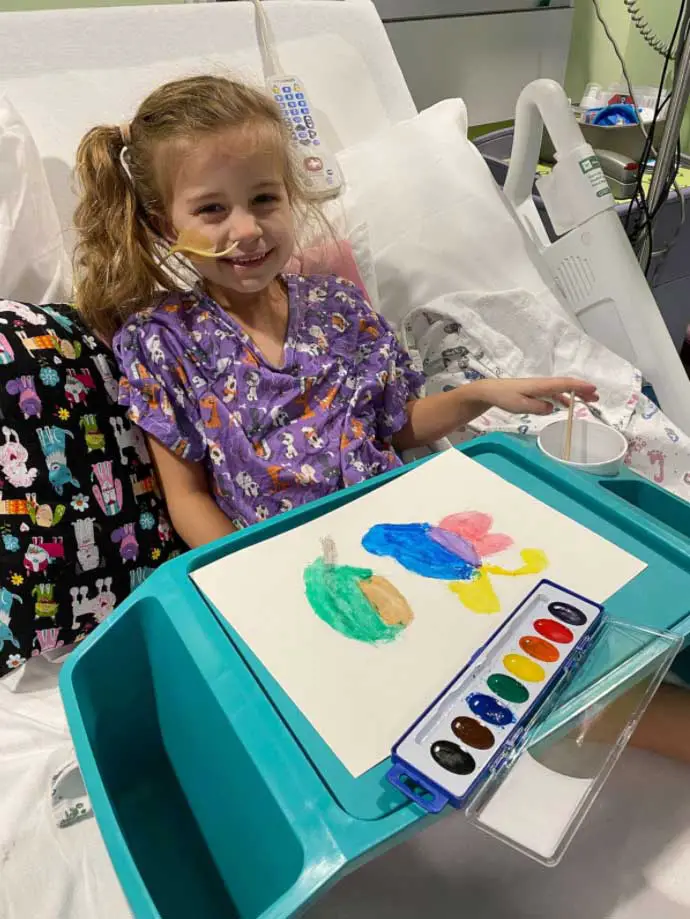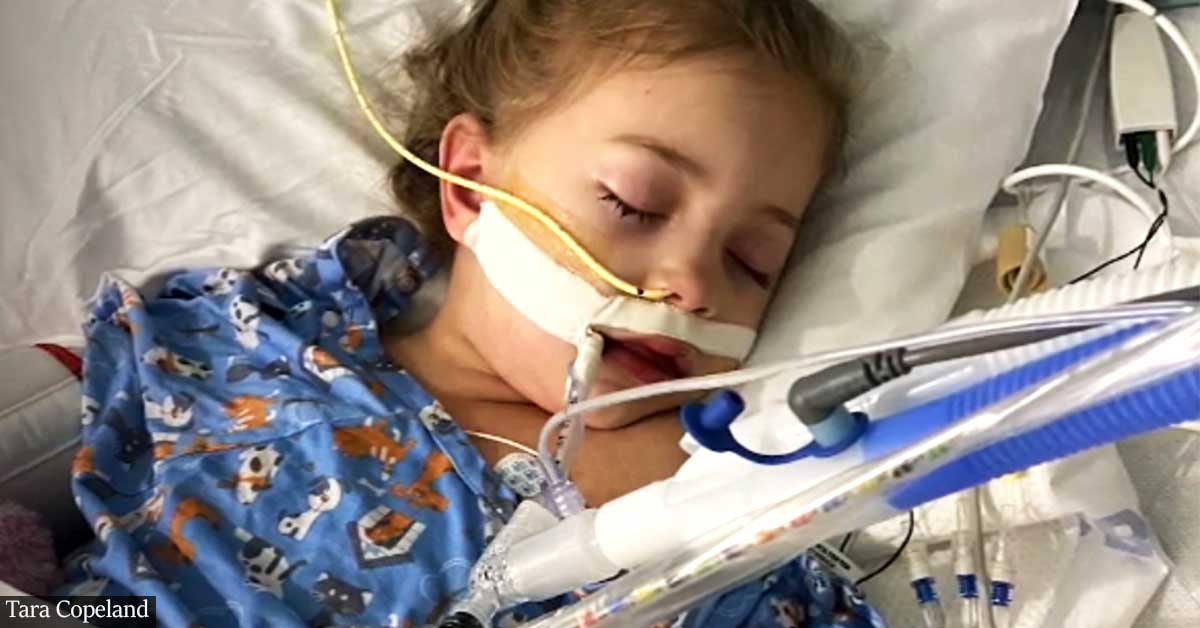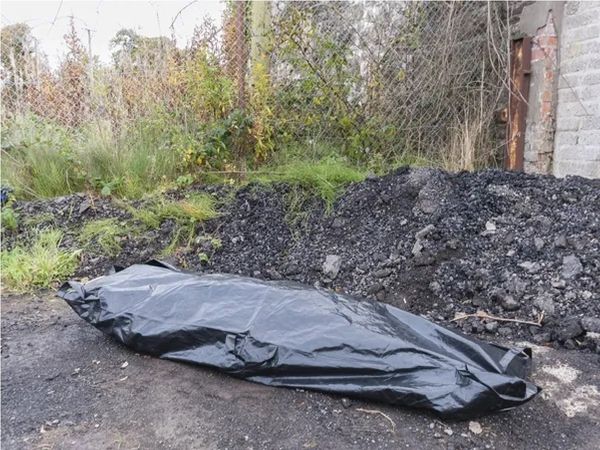Tara Copeland warns fellow parents about the dangers of coronavirus after her daughter Peyton, 5, contracted a potentially life-threatening, COVID-related disease that affects kids. The child was diagnosed with the multisystem inflammatory syndrome(MIS-C) a month after both her mom and dad tested positive for COVID-19.
Patients diagnosed with MIS-C have inflammation in different parts of their bodies, including the heart, lungs, brain, skin, eyes, and kidneys.
As Good Morning America reveals, the couple’s five children, including Peyton, also showed symptoms of the virus.
On Christmas morning, the 5-year-old girl woke up with a headache and a low-grade fever. The following day, her parents took her to an urgent care clinic. Doctors at the medical center started treating Peyton for strep throat. Unfortunately, her symptoms suddenly became much more serious.

The concerned mother describes the distressing situation:
“By the night of the 27th she came down with a really bad rash and by this time her lips were swollen, her eyes were bloodshot and her face was starting to swell. She still had a horrible headache and stomachache and kept waking up in pain.”
Ms. Copeland shares she had never heard of this syndrome before. The mother of Weatherford, Texas, adds:
“They tested her for COVID-19 and said she was negative for COVID but she was positive for antibodies, and they started doing more lab work and figured out she probably had MIS-C. By that night she was in the ICU and about 4 p.m. the next day she was put on a ventilator.”
According to Dr. Nicholas Rister, an infectious disease specialist at Cook Children’s Hospital, MIS-C affects children who have had the virus that causes COVID-19. He explains:
“What we’ve seen previously with other infections in children, and in adults too, your immune system gets really revved up, and starts driving inflammation, which normally isn’t bad because that’s how your body drives off infections.
The problem with these post-infection inflammation syndromes is that you’re post the infection so these kids have already had COVID and they’ve either recovered from it or they’ve had very mild symptoms, but now for some reason, their immune system gets highly turned on, and that’s where you start to see the fevers, the rashes, the irritability.”

The 5-year-old’s symptoms progressively worsened to the point where she was struggling to breathe.
Along with having difficulties breathing, the child was also struggling to maintain consciousness. She remained on a ventilator for two days. After that, she was placed on oxygen and was feeding through a tube.
Peyton’s mother says that if she had been aware of this syndrome before, she would have gone “straight to the hospital instead of to urgent care.” She adds:
“I didn’t know that it existed or the symptoms and because she had a positive strep test, I just thought okay she has strep.”
As the CDC reports, a similar multisystem inflammatory syndrome has been observed in adults since June 2020. The condition is known as MIS-A.
Dr. Rister warns that if children have been exposed to COVID-19, their parents must watch for alerting symptoms. He clarifies:
“If there have been family members with COVID and then weeks later a child is acting sick, then it’s something that needs to be considered. It’s very tricky because it’s kind of non-specific, but usually with something like MIS-C, it’s going to be severe enough that it’s not something that most family members would be comfortable watching at home, they’re going to be like, ‘My child needs to get checked out. This is too much.’”
Experts advise parents to watch for MIS-C symptoms in their children, despite the condition being a rare COVID-19 complication.
Since coronavirus cases in the U.S. are on the rise, children are also vulnerable to the virus. Ms. Copeland hopes that her daughter’s story would help other parents be more aware of the risks.
“Parents need to know the symptoms so [they] can bring a child in to be treated as soon as possible.”

As for Peyton, the mother shares:
“She’s a little miracle really, is what [doctors] say. It’ll be a pretty long road to get back to herself but they expect no permanent damage.”
Thankfully, on January 7, after two weeks in the hospital, little Peyton was finally discharged. Her mom shares that she is expected to make a full recovery.




